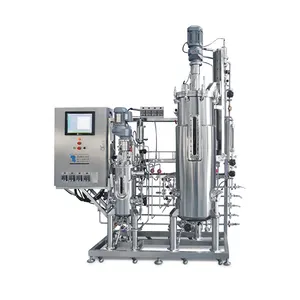Introduction to Biotech Technology
Biotech technology, an innovative frontier in modern science, combines biology with technology to develop products and solutions that enhance human health, agricultural productivity, and environmental sustainability. This interdisciplinary field utilizes living systems and organisms to create or modify products, thereby revolutionizing various industries including pharmaceuticals, agriculture, and consumer goods. The integration of biotechnology into everyday applications opens a plethora of opportunities that enhance efficiency, effectiveness, and overall productivity.
Types of Biotech Technology
Biotech technology encompasses a wide array of types, each serving critical functions across different sectors. Notable types include:
- Medical Biotechnology: This branch focuses on the development of drugs and therapeutic methods using biological processes. It includes gene therapy and monoclonal antibodies that target diseases at their source.
- Agricultural Biotechnology: Enhancing crops through genetic modification, this type improves yield, resistance to pests, and reduced need for chemical fertilizers.
- Industrial Biotechnology: This area leverages biological processes for the production of biofuels, biodegradable plastics, and other sustainable materials, reducing reliance on fossil fuels.
- Environmental Biotechnology: It focuses on waste treatment processes, bioremediation, and ecosystem management to heal and protect the environment.
Applications of Biotech Technology
The versatile nature of biotech technology leads to a variety of applications that significantly impact our lives. Key applications include:
- Pharmaceutical Development: Accelerating drug discovery and development to provide efficient treatments for diseases, particularly through personalized medicine.
- Genetic Engineering in Agriculture: Producing genetically modified organisms (GMOs) that contribute to food security and resilience in the face of climate change.
- Biofuels Production: Utilizing renewable resources to produce fuels that minimize carbon emissions and promote sustainability.
- Environmental Solutions: Implementing biotech processes to clean up polluted environments and restore ecosystems through bioremediation techniques.
Advantages of Biotech Technology
Integrating biotech technology brings numerous advantages, making it a critical component in various industries:
- Innovation and Efficiency: By leveraging living organisms, biotech technology fosters innovation, leading to faster development processes and more effective solutions.
- Enhanced Products: Offers improved quality and performance in products, whether in pharmaceuticals or agricultural goods, ultimately benefiting consumers.
- Sustainable Practices: Promotes environmentally friendly practices by reducing waste, improving resource management, and creating biodegradable alternatives.
- Global Health Impact: Supports the development of medical therapies that address critical health issues, contributing to improved global health outcomes.








































